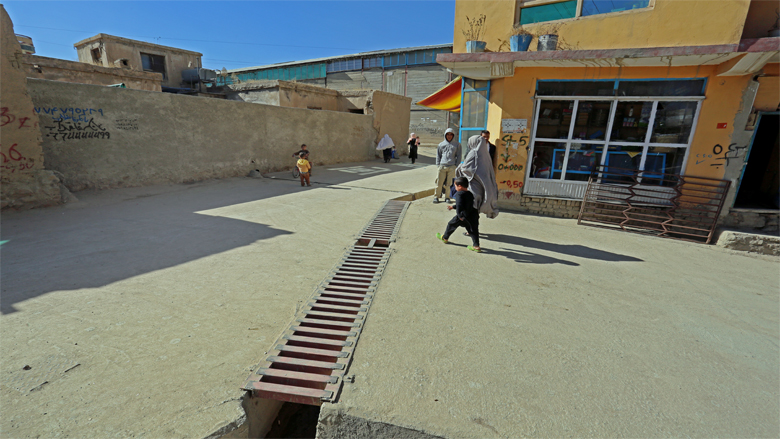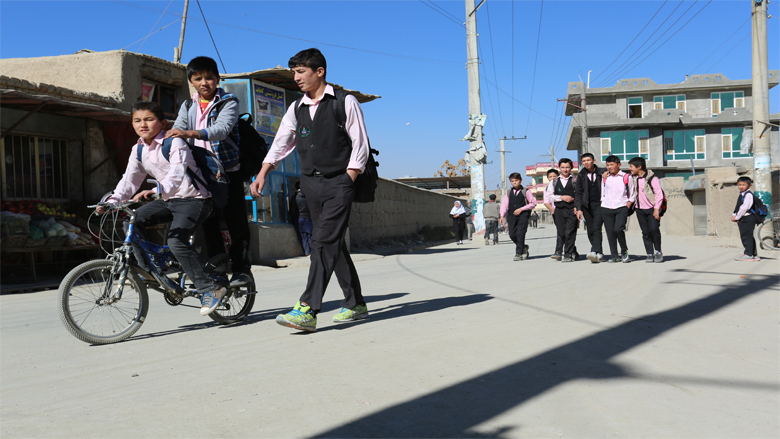KABUL CITY – Vendor Ewaz, 65, is arranging vegetables in neat piles on his cart and spraying water on them to keep them fresh. He nods to the beat of the music playing on the radio hanging on his vegetable cart, located in one of the many lanes in district 13 Kabul.
Ewaz is pleased with his spot in the lane, especially after the area was cleaned up. “Before the lanes were paved in this area, the air was too dusty and I was not able to save my vegetables for more than a day,” says Ewaz, smiling. “Now our lanes are clean and smooth. I can push my cart easily. Our lanes are a model of cleanliness in this area.”
Nearly 2,500 people live in Qala-e Sultan Gozar, one of the oldest residential areas in Kabul city, where most of the residents are poor. Until recently, there were no paved streets and lanes, no functional drainage in the area, and residents had to live with limited access to markets, schools, and even health facilities.
All this has changed since Kabul Municipality (KM) paved nearly all the lanes of Qala-e-Sultan Gozar with concrete. The work, carried out under the Kabul Municipal Development Program (KMDP), took about nine months and was completed in July 2016. The result is eight paved lanes totaling 3 kilometers and a 2-kilometer long drainage system.
The implementation of the project has proved significant in serving the needs of a city that has expanded tenfold over the past 15 years. Air pollution because of dust from dirt roads has also decreased after the lanes were paved.
Residents, like Mohammad, 17, a 9th grade student, find that they are able to go about their daily lives more efficiently. “Before the lanes were paved, I had to walk a long way to avoid the dirt and mud on the unpaved roads,” he says. “But now I don’t have to take the side streets because our own street has been paved. I reach school on time now.”
With a $110 million grant from the Afghanistan Reconstruction Trust Fund (ARTF), KMDP aims to increase access to basic municipal services in selected residential areas of Kabul city; redesign Kabul Municipality’s Financial Management System to support better service delivery; and enable early response in the event of a relevant emergency.


